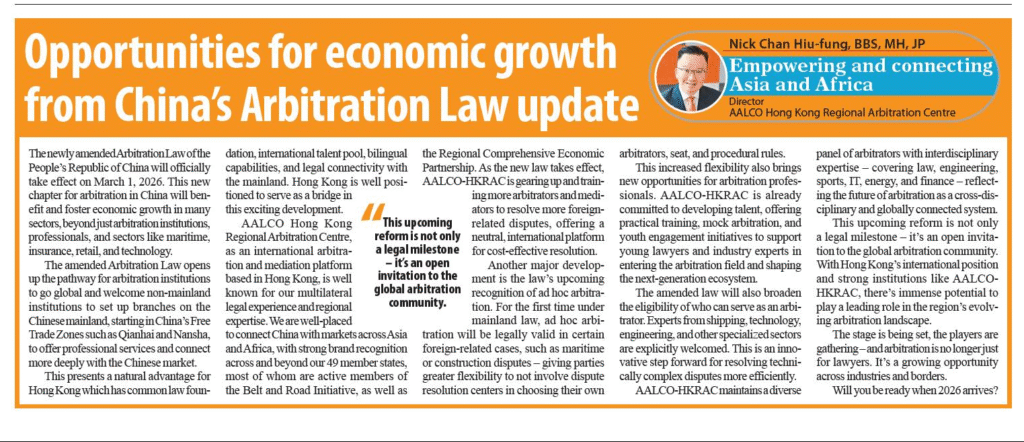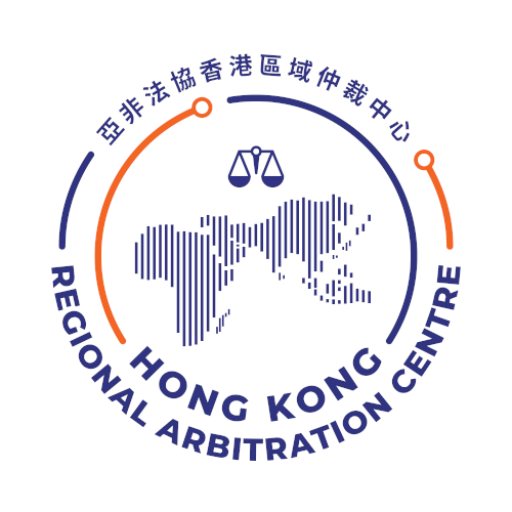- admin
- October 10, 2025
The newly amended Arbitration Law of the People’s Republic of China will officially take effect on 1 March 2026. This new chapter for arbitration in China will benefit and foster economic growth in many sectors, beyond just arbitration institutions, professionals, and sectors like maritime, insurance, retail and technology.
The amended Arbitration Law opens up the pathway for arbitration institutions to go global and welcome non-mainland institutions to set up branch on the mainland, starting with setting up in China’s Free Trade Zones, such as Qianhai and Nansha, to offer professional services and connect more deeply with the mainland market.
This presents a natural advantage for Hong Kong which has common law foundation, international talent pool, bilingual capabilities, and legal connectivity with the mainland. Hong Kong is well positioned to serve as a bridge in this exciting development.
AALCO Hong Kong Regional Arbitration Centre (AALCO-HKRAC) as an international arbitration and mediation platform based in Hong Kong is well known for our multilateral legal experience and regional expertise. We are well-placed to connect China with markets across Asia and Africa, with strong brand recognition across and beyond our 49 counties member states, most of them are active members of the Belt and Road Initiative, as well as RCEP and BRI. As the new law takes effect, AALCO-HKRAC is gearing up and training more arbitrators and mediators to resolve more foreign-related disputes, offering a neutral, international platform to cost effectively resolve disputes.
Another major development is the law’s upcoming recognition of ad hoc arbitration. For the first time under mainland Chinese law, ad hoc arbitration will be legally valid in certain foreign-related cases, such as maritime or construction disputes—giving parties greater flexibility to not involve disputes resolution centres in choosing their own arbitrators, seat, and procedural rules.
This increased flexibility also brings new opportunities for arbitration professionals. AALCO-HKRAC is already committed to developing talent, offering practical training, mock arbitrations, and youth engagement initiatives to support young lawyers and industry experts in entering the arbitration field and shaping the next-generation ecosystem.
The amended law will also broaden the eligibility of who can serve as an arbitrator. Experts from shipping, technology, engineering, and other specialized sectors are explicitly welcomed. This is an innovative step forward for resolving technically complex disputes more efficiently.
AALCO-HKRAC maintains a diverse panel of arbitrators with interdisciplinary expertise such as law, engineering, sports, IT, energy and finance —reflecting the future of arbitration as a cross-disciplinary and globally connected system.
This upcoming reform is not only a legal milestone—it’s an open invitation to the global arbitration community. With Hong Kong’s international position and strong institutions like AALCO-HKRAC, there’s immense potential to play a leading role in the region’s evolving arbitration landscape.
The stage is being set, the players are gathering—and arbitration is no longer just for lawyers. It’s a growing opportunity across industries and borders.
Will you be ready when 2026 arrives?


